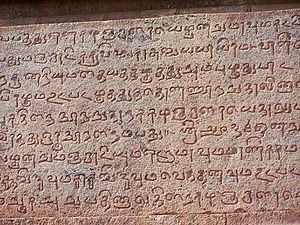Linguistics facts for kids
Linguistics is the scientific study of language. People who study language are called linguists. They explore how languages work, how they change, and how we use them.
Linguistics has five main parts:
- Phonology is about the sounds of language. It looks at how we make sounds and how they create meaning.
- Morphology studies the parts of words. For example, "un-" and "-ing" are small parts that change a word's meaning.
- Syntax is about how we put words together to make sentences. It's like the grammar rules of a language.
- Semantics is the study of what words and sentences actually mean.
- Pragmatics looks at the hidden meaning in what we say. For instance, if you say "I'm cold," you might really mean "Please close the window!"
Contents
What Do Linguists Do?
Linguists use their knowledge in many ways. Some are theoretical linguists. They study the big ideas and theories behind language. Others are applied linguists. They use linguistics to solve real-world problems.
Theoretical Linguistics
Theoretical linguists explore how language works in general.
- Historical linguistics studies how languages change over time. It looks at how words and grammar have evolved.
- Sociolinguistics explores how different groups of people use language. It shows how language can vary based on age, region, or social group.
- Psycholinguistics studies how our minds use and understand language. It looks at how we learn and process words.
- Neurolinguistics focuses on how our brains handle language. It examines which parts of the brain are active when we speak or listen.
Applied Linguistics
Applied linguists use language knowledge for practical tasks.
- Computational linguistics helps computers understand human languages. This is used in things like voice assistants (like Siri) and translation apps.
- Forensic linguistics uses language skills in crime investigations. For example, it can help identify a writer based on their unique language style.
- Language acquisition is the study of how children and adults learn new languages.
Comparing Languages
Linguists often compare different languages. By doing this, they can find out what all languages have in common. They can also discover which languages are related to each other, like how English and German come from the same language family.
The History of Words
A part of historical linguistics is called etymology. Etymology is the study of where words come from and how their meanings have changed over hundreds or thousands of years. It's like finding the family tree of a word!
History of Linguistics
People have been studying language for a very long time.
Early Language Scholars
The study of language began in India around 500 BC. A scholar named Pāṇini wrote nearly 4,000 rules for the ancient language Sanskrit. He described its sounds and how words were formed.
In the Middle East, a scholar named Sibawayh wrote an important book about the Arabic language around 760 AD. He was one of the first to explain the difference between a sound and a phoneme (a basic unit of sound that can change the meaning of a word).
In the Western world, early language studies were often part of philosophy. The Greek philosopher Plato wrote about the meaning of words. He was one of the first to use the word etymology to talk about the history of a word's meaning.
See also
 In Spanish: Lingüística para niños
In Spanish: Lingüística para niños
 | James B. Knighten |
 | Azellia White |
 | Willa Brown |


